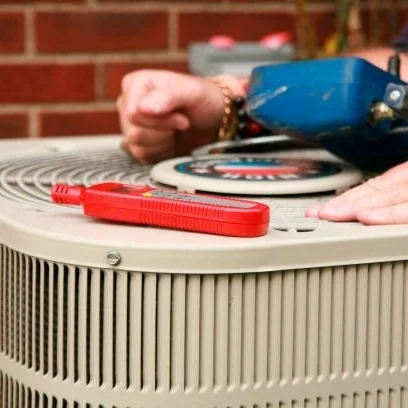AC Maintenance Quick Guide: The Basics of Air Conditioning Filters
Every homeowner wants to keep their indoor air clean and healthy. Air filters are critical in every air conditioning unit and ensure that the family breathes fresh high-quality air. These filters are next to the AC’s air handler (a metal box with the fan and motor). AC filters trap and remove various contaminants, like dust, pollen, mold, smoke, bacteria, and microorganisms polluting indoor air.
Air filters get dirty and clogged with regular use. Clogged air conditioning filters allow dirt and dust to enter the system and cause early wear and tear of components, leading to a breakdown. It also restricts airflow through the system and hampers its proper functioning. Therefore, it is essential to change or clean air filters periodically.
Installing a new air filter in the air conditioning unit is not enough. Regular filter cleaning or replacement is one of the vital parts of air conditioning maintenance. This maintenance plays a crucial role in keeping the internal components free from dust and debris, which helps improve unit efficiency and reliability and maintain good air quality.
Types of air conditioning filters
Washable filters
Disposable filters
Fiberglass filters
Pleated filters
Electrostatic filters
Air conditioning filters come in different sizes, and you need to choose the one that is right for the cooling system. Each filter has its advantages and disadvantages, and an AC professional can determine the right filter for your household’s needs.
Reasons to clean and replace air conditioning filters regularly
Homeowners should check the air filters every month during peak summers and replace them if they appear dirty. Replace reusable filters every five years and wash them every three to four months. Several factors usually determine the frequency of filter replacement:
The type of filter
If there are pets in the house
The number of hours the system runs each day
If any family member smokes or suffers from allergies
Here are a few reasons to regularly change your air conditioning filters:
Reduce energy bills
Improve indoor air quality
Fewer repairs
Avoid expensive repairs
Reduce greenhouse emissions
Prevent health risk
Prolong AC life
How to choose an air conditioning filter
Before purchasing a new AC filter, homeowners need to measure the filter size they require and then determine the ideal MERV rating. The minimum efficiency reporting value states the effectiveness of an air filter ranging from 1 to 20. A higher rating means a more effective filter. The last step is to choose the filter that works best for your home and family requirements.
How to replace your air conditioning filter
Replacing an air conditioning filter is quick and easy, and homeowners can do it without professional assistance.
Turn off the power
Remove the old filter and inspect it to determine if it is clogged and dirty and requires replacement.
Clean the washable filter using a hose to remove dust and dirt. After cleaning, let it dry completely before re-installing.
If the AC uses a disposable filter, place it safely inside a plastic bag and throw it in the trash can.
Place the new or cleaned filter carefully and correctly.
Contact an air conditioning service professional to learn more about AC filters and choose the right filter for your system.
Call Above and Beyond Air Conditioning & Heating at (210)794-9895 for any AC installation, AC maintenance, AC replacement, AC tuneup, and condenser coil cleaning needs in San Antonio, TX. We are a licensed company ensuring top-quality solutions.

